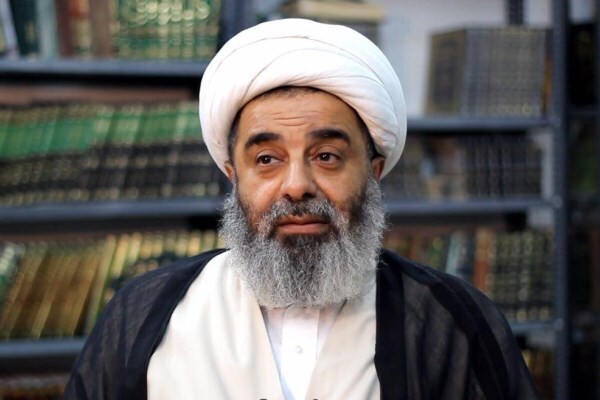Iraqi Scholar Highlights Quranic Framework of Security

In an interview with IQNA, Ayatollah Mohammad Sanad Al-Bahrani, a senior instructor of the Najaf Islamic Seminary, argued that Islamic teachings prioritize both physical and “soft” security measures—ranging from vigilance to covert planning—as vital tools for communal and political resilience.
The Quran and Hadith discuss security under varied terms like taqiyya (protection), hadhar (caution), basira (insight), and makr (strategic deception against enemies), he said.
These concepts span social, political, and cultural dimensions, not just individual safety, the cleric emphasized.
He said Taqiyya—often translated as ‘prudent concealment”—is likened to modern security systems, preserving faith and community under threat.
Classical jurists like Imam Khomeini, Ayatollah al-Hakim and others, focused on taqiyya’s individual applications, Ayatollah Bahrani said, adding that it also plays a collective role in safeguarding religious identity and political stability.
Citing Verse 60 of Surah Al-Anfal of the Holy Quran, “Prepare against them all you can of power”, the scholar noted that power includes non-physical tools like covert planning and intelligence.
“A hidden security system is a silent but devastating weapon,” he said, arguing that strategic foresight often outweighs military might.
Quoting the Hadith, “A believer is not bitten twice from the same hole”, he emphasized vigilance and adaptability as core to Islamic ethics.
The scholar also linked the Holy Prophet’s (PBUH) praise for “cautious, insightful” believers to modern security principles, saying a believer’s mindset must be based on care, vigilance, caution, security awareness, and preparation so as not to be subjected to similar, hidden attacks twice.
This noble verse shows that honor and dignity are owed to the security system, and the security system is one of the greatest and most important religious duties that have been placed on the individual, the nation, the elites, and the communities, he stressed.
It is also the greatest practical duty, to the extent that it has been narrated from the Infallible Imams (AS) that the one who practices taqiyyah is greater than the one who performs the prayer, he went on to say.
“We must pay attention to the importance of the security system and know that this system is the pinnacle of religion and the pinnacle of duties, tasks, and responsibilities that are placed on the shoulders of those entrusted with it, especially Muslims, believers, and the pious. The pious are those who feel secure.”
Read More:
Ayatollah Bahrani, added, “If we have Imam Zaman (may God hasten his glad advent) alive and present before us, we should imitate his most prominent characteristic and let him be a good example for us. His greatest roles and activities are hidden, not obvious. Therefore, we should acquire the science of public security by using human experiences and sources of revelation (Quranic sources), and these studies should be combined.”
He concluded by saying, “The efforts of academics and seminarians in this field must be combined so that we can extract from the Quran, the Prophet’s (PBUH) household, and human experiences so that reliance on the Quran to create strength, ability, honor, dignity, justice, and help the oppressed of the world can grow even more.”
4297602



